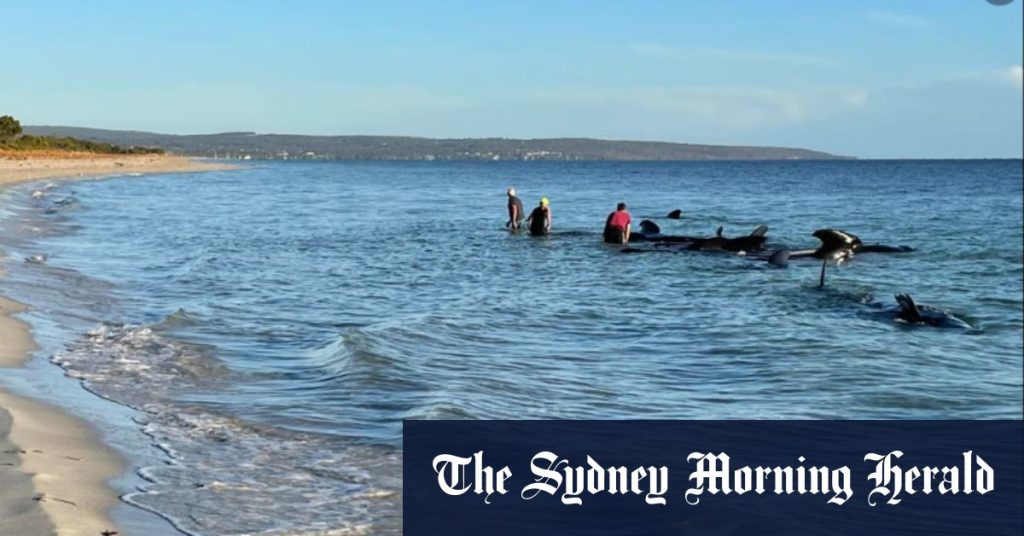An alarming situation unfolded as a large pod of pilot whales became stranded on a beach, prompting a massive rescue effort by volunteers. The scene was described as heartbreaking, with volunteers working tirelessly to save as many whales as possible. They pulled the whales out to sea in the hopes that the pod would stick together and find their way back to deeper waters. The distressing sight of people in the water pulling the whales by their tails was enough to bring tears to onlookers’ eyes.
In response to the stranding, the City of Busselton rangers made the difficult decision to close the beach to the public. This decision was likely made to ensure the safety of both the volunteers and the public and to prevent any further disturbance to the stranded whales. This action highlights the seriousness of the situation and the need for space and time for rescue efforts to be carried out efficiently.
Tragically, a similar incident occurred last year in Albany, where around 50 pilot whales died despite the heroic efforts of volunteers. The Department of Biodiversity, Conservation and Attractions (DBCA) noted that based on past experiences with pilot whale strandings, euthanizing the beached animals may be the most humane course of action. This decision, if made, would be a difficult but necessary one to prevent further suffering for the stranded whales.
The dedication and determination of the volunteers involved in the rescue efforts cannot be overstated. These individuals selflessly put themselves in harm’s way to save as many whales as possible, despite the emotional toll of the situation. The images of volunteers working tirelessly to save the stranded whales speak to the compassion and humanity of those involved in the rescue efforts.
The communication and coordination among the volunteers and authorities during the rescue operation are crucial in ensuring the safety and well-being of both the volunteers and the stranded whales. By working together effectively, the rescue efforts can be coordinated in a way that maximizes the chances of saving as many whales as possible. This collaboration is essential in navigating the challenging circumstances of a whale stranding and making decisions that prioritize the welfare of the animals involved.
As the rescue efforts continue and the fate of the stranded whales hangs in the balance, the community’s support and empathy are vital. The emotional toll of witnessing such a heartbreaking situation is immense, but by coming together as a community, we can provide the necessary support and encouragement to those involved in the rescue efforts. The determination to save the stranded whales is a testament to the resilience and compassion of humanity in the face of adversity.













